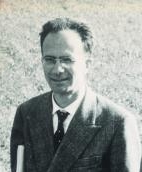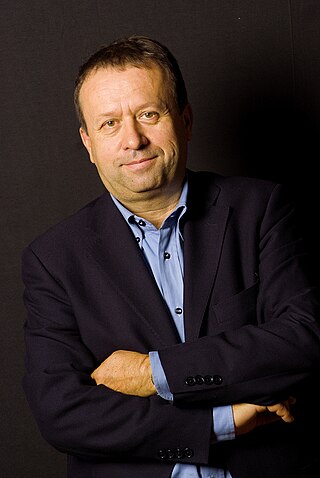
Southern Italy also known as Meridione or Mezzogiorno, is a macroregion of Italy consisting of its southern regions.

Castel del Monte is a 13th-century citadel and castle situated on a hill in Andria in the Apulia region of southeast Italy. It was built during the 1240s by King Frederick II, who had inherited the lands from his mother Constance of Sicily. In the 18th century, the castle's interior marbles and remaining furnishings were removed. It has neither a moat nor a drawbridge and some considered it never to have been intended as a defensive fortress. However, archaeological work has suggested that it originally had a curtain wall. Described by the Enciclopedia Italiana as "the most fascinating castle built by Frederick II", the site is protected as a World Heritage Site. It also appears on the Italian version of the one cent Euro coin.

The Duchy of Amalfi or the Republic of Amalfi was a de facto independent state centered on the Southern Italian city of Amalfi during the 10th and 11th centuries. The city and its territory were originally part of the larger ducatus Neapolitanus, governed by a patrician, but it extracted itself from Byzantine vassalage and first elected a duke in 958.

Alessandro Barbero is an Italian historian, novelist and essayist.
Piero Boitani is an Italian literary critic.

Guido Zappa was an Italian mathematician and a noted group theorist: his other main research interests were geometry and also the history of mathematics. Zappa was particularly known for some examples of algebraic curves that strongly influenced the ideas of Francesco Severi.

The County of Apulia and Calabria, later the Duchy of Apulia and Calabria, was a Norman state founded by William of Hauteville in 1042 in the territories of Gargano, Capitanata, Apulia, Vulture, and most of Campania. It became a duchy when Robert Guiscard was raised to the rank of duke by Pope Nicholas II in 1059.

Massimo Montanari, currently Professor of Medieval History at Bologna University, is a scholar in Food studies. His interest in the subject stems from his researches and studies in Medieval Agrarian History. He has been invited as visiting professor to a number of leading universities in Europe, Japan, the United States, Mexico and Canada.
Federico Cafiero was an Italian mathematician known for his contributions in real analysis, measure and integration theory, and in the theory of ordinary differential equations. In particular, generalizing the Vitali convergence theorem, the Fichera convergence theorem and previous results of Vladimir Mikhailovich Dubrovskii, he proved a necessary and sufficient condition for the passage to the limit under the sign of integral: this result is, in some sense, definitive. In the field of ordinary differential equations, he studied existence and uniqueness problems under very general hypotheses for the left member of the given first order equation, developing an important approximation method and proving a fundamental uniqueness theorem.
Federico Amodeo was an Italian mathematician, specializing in projective geometry, and a historian of mathematics.
Carlo Miranda was an Italian mathematician, working on mathematical analysis, theory of elliptic partial differential equations and complex analysis: he is known for giving the first proof of the Poincaré–Miranda theorem, for Miranda's theorem in complex analysis, and for writing an influential monograph in the theory of elliptic partial differential equations.
Gianfranco Cimmino was an Italian mathematician, working mathematical analysis, numerical analysis, and theory of elliptic partial differential equations: he is known for being the first mathematician generalizing in a weak sense the notion of boundary value in a boundary value problem, and for doing an influential work in numerical analysis.

Saverio Baldacchini was an Italian politician, writer and poet.

Luca de Samuele Cagnazzi was an Italian archdeacon, scientist, mathematician, political economist. He also wrote a book about pedagogy and invented the tonograph.
Raffaele Licinio was an Italian historian, who, throughout his career, carried out extensive research into the medieval period in Southern Italy. He also taught medieval history at the University of Bari.

Chiara Frugoni was an Italian historian and academic, specialising in the Middle Ages and church history. She was awarded the Viareggio Prize in 1994 for her essay, Francesco e l'invenzione delle stimmate.
Salvatore Lupo is an Italian historian and author from Siena, specializing in the Sicilian Mafia.
Guglielmo Maetzke was an Italian archaeologist and etruscologist. A pupil of the Etruscologist Massimo Pallottino, he directed important excavation campaigns in Tuscany, Lazio, Campania and Sardinia.
Paolo Prodi was an Italian historian and politician.
Giuseppe Cacciatore was an Italian philosopher and historian of philosophy. He was professor emeritus of history of philosophy at the University of Naples Federico II.










